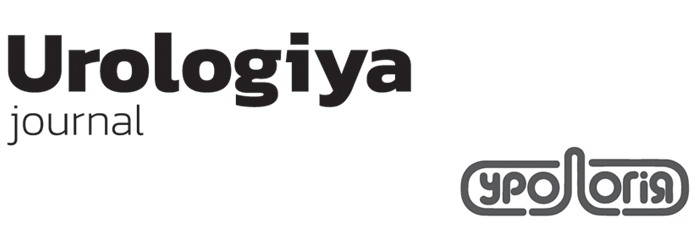V.P. Stus, V.V. Yehalov, M.M. Moiseenko, S.I. Barannik, V.V. Gorbuntsov
Situational problems in the formation of professional competence of specialists in specialty “Urology”
A modern activity has indicated the vector for the future development. Therefore, for the establishment of clinical thinking, encouragement of the young specialists, disclosure of initiative, orientation in time among a wide informational access, it is set the question of “interdisciplinary links”, and as a result an ability to choose the most effective methods from suggested in the modern environment.
Interdisciplinary tasks integrate discipline “Urology” in educational and training complex. Implementation of the knowledge of this type is a method of improvement for mastering of the basic medical sciences and further related subjects. Promotion of the clinical thinking formation not in the medical chairs, but right from the beginning of the education. On the advance training cycles, these tasks mostly require a review of the forgotten material of the past years related to the basic disciplines and improvement of these for the integration in phased interdisciplinary tasks. In the process of resolution professional choice is differentiated, and a continuous improvement in this direction. The tasks themselves represent “perforated” tasks (those that contain data, resolution of which requires the involvement of knowledge not in the single discipline, but in a complex way, which corresponds more to practical application then to the theoretical) moreover, a grading approach is applied for the determination of the probationer’s readiness.
The possibility of independent resolution of complicated clinical tasks and handling of latest technologies are only possible by summation of efforts of related teachers. Implementation of interdisciplinary tasks increases mastering of basic sciences as well as of the clinical disciplines in the future, and the ability to respond today’s social needs. Resolution of these tasks requires a review in the memory of today’s acquired material and so, its fixation in the further usage.

